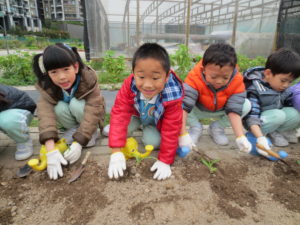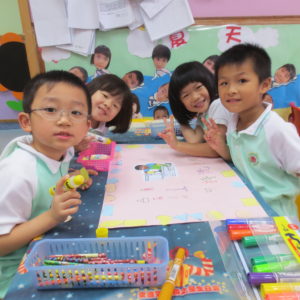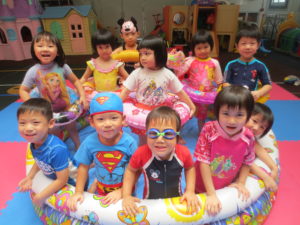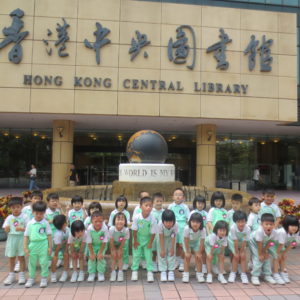Our curriculum is designed according to the Kindergarten Education Curriculum Guide 2017. It emphasizes everyday life themes and the objectives of every learning aspect. The learning objectives and context are developed around the “sequentiality” principle and the spiral approach which enables students to learn step by step. The curriculum aims to enhance children’s creative thinking, encourage them to learn through exploration and grow from gaining hands-on experience.
Integrated Teaching Approach
It combines different subjects and connects the learning context with students’ prior skills, knowledge, attitudes and learning experiences, thus providing children with a curriculum that connects different areas of study.
We actively promote the following learning modules:
- “Theme-based teaching”: Exploratory activities that match different themes are arranged to encourage children to take ownership of their learning and acquire knowledge throughout the process.
- “Project approach”: To cultivate children’s interests in self-driven exploration, children are engaged in in-depth, continuous learning projects designed to meet their interests and abilities.
- “Whole-language learning”: Create a “whole-language” learning environment with real-life situations that allow children to use their language skills, read and write. It aims to provide children with an integrated language learning experience that enables them to apply their listening, speaking, reading and writing skills in everyday life.
Learning Assessment
We use a diversified assessment strategy to conduct continuous summative assessments to record children’s learning performances. We set up learning portfolios for children based on continuous observation, record and feedback. An assessment is carried out upon the completion of each unit and children’s learning portfolios that reflect children’s learning progress are distributed at the end of each semester. This helps enhance the collaboration between the school and parents for children’s development, and enhance children’s abilities and potentials in different domains.
Parent observation in the classroom is arranged every year, allowing parents to get a picture of the learning activities and how their children are learning.
We organise parents’ talks and Parents’ Day regularly. Class teachers will meet the parents to talk about the children’s learning and progress.
 2697 9238
2697 9238 olns@elchk.org.hk
olns@elchk.org.hk



